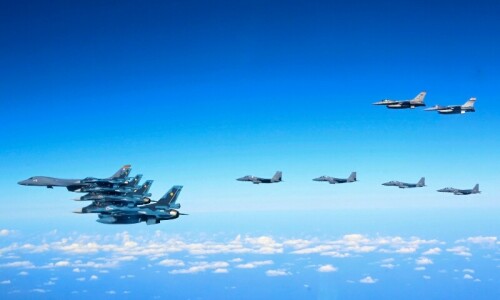Under their 1953 bilateral treaty, which is the foundation of their military alliance, South Korea and the United States have, for the first time, explicitly confirmed that cyber and space threats to either country could trigger mutual defense actions.
The responsibility was framed in a joint proclamation following the South Korea-US ‘2+2′ unfamiliar and protection ecclesiastical gathering hung on Thursday in Washington, prominently in the midst of rising worries over developing security participation among Russia and North Korea, especially in regions like digital and space, including satellite innovation moves
“We likewise certified that assaults in space or the internet that obviously challenge the security of the union could lead us to conjure Article III of the Peace accord,” US Guard Secretary Lloyd Austin said during a joint news gathering following the 2+ gathering — the first of its sort since Walk 2021. ” Therefore, we are expanding our interoperability and information sharing in order to increase our awareness of threats in the cyber and space domains.”
If either party within its jurisdiction is attacked, Article III stipulates a mutual defense commitment, provided that the other party deems the attack a threat to its own safety and peace and declares its intention to address the shared danger in accordance with its constitutional procedures.
The joint statement made it clear that international law applies to cyberspace and that a cyberattack could be considered an armed attack under Article III in certain circumstances. It also emphasized that attacks that originate in, target, or occur within space pose a significant threat to the alliance’s security and may call for Article III to be invoked.
The statement, referring to South Korea by its official acronym, read, “Both sides affirmed that a decision as to when attacks in either domain would lead to an invocation of Article III would be made on a case-by-case basis and through close consultations between the United States and the ROK, as would be the case for any other threat.”
Yang Uk, a research fellow at the Asan Institute for Policy Studies in Seoul, said that the allies’ declarations are motivated by the urgency of new security challenges, especially from North Korea and other authoritarian nations in the cyber and outer space domains.



